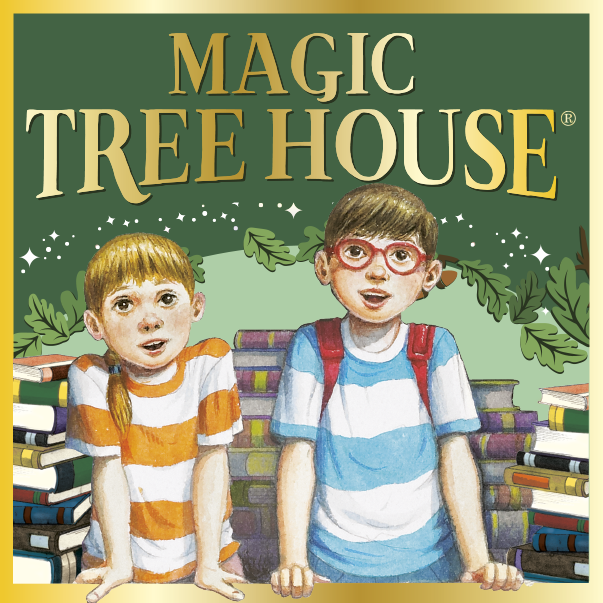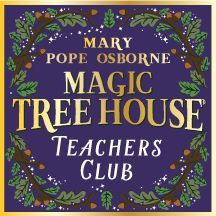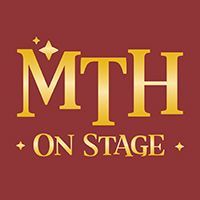Fascinating Facts!

Most facts are so incredibly interesting that in order to understand them, you must first imagine them.
Natalie Pope Boyce has always been one for the details. She grew up in a military family with her sister, author of the Magic Tree House series, Mary Pope Osborne, and lived abroad at a young age. While learning different languages, Natalie found delight in the nuances of different words and information. She loved trying to explain the world around her and to discover the reasons behind why things happened and how they happened.
Natalie has written over 38 Magic Tree House Fact Trackers with her sister. The nonfiction books serve as companions to many of the fiction books in the series and act as a reader’s guide that delves into complex subjects from the series and transforms them into simple concepts that young children can understand. They give children an appreciation for the wonders of the “real” world and inspire a curiosity for learning more about history and natural science.
Below is the first half of an interview conducted with Natalie by our partner in promoting literacy, FirstBook.org, in November of 2017. We will post the second half of Natalie's interview next week!
Q: You traveled a lot as a young person and as a young adult. How have these travels impacted your writing and interest in trivia and facts?
NPB: As a child and an adult, I lived in Austria, Germany, Ireland, and for many years, in Mexico and later on the Arizona/Mexican border. Among the things I’ve learned is that nothing is trivial, especially when you’re trying to grasp the differences in cultures. The smallest nuances usually speak volumes and attention should be paid to them.
Mexicans, for example, have a strong sense of hospitality that is practiced by most people regardless of class. I passed a Mexican friend once who was rushing down the street and asked where she was going. “To your house,” she replied. What she actually meant was “Mi casa es su casa”; her house was my house. That encounter was one of many insights into the heart of Mexican culture.
As for facts, it’s a cliché to say this, but facts are a bridge into the joys of imagination. In Austria, we played on the grounds of the Hohensalzburg Castle. We knew some facts about the castle, which was actually a fortress, but we imagined a sort of Camelot and pretended to wear crowns that we wove out of dandelions and galloped around jousting. Most facts are so incredibly interesting that in order to understand them, you must first imagine them.
Q: One of our favorite things about the Magic Tree House series is the combination of the chapter books with the Fact Trackers. Why is it important for kids to have both the fictional story and the nonfiction information about a specific topic?
NPB: The pairing of fiction and nonfiction has the practical value of training a child’s mind to anticipate the consequences or import of a fact. Children read the two very differently. In fiction they ask what comes next. In nonfiction they’re forced to ask why something follows from the previous fact. They have to ask themselves what conclusion the facts lead them to make. Nonfiction teaches children to take a reasoned, knowledgeable look at the world, its history, and to back up their thoughts with facts.
Q: What advice would you give to a child that claims to hate reading?
NPB: If children hate reading it’s because 99.9 percent of the time, they’re having a hard time mastering it.
They feel ashamed and humiliated and consequently they stagger along without any reward shining on the horizon. Reading is an accomplishment that not all children accomplish at the same rate. So much of their ultimate success depends on the value books play in the home and how much time parents are willing to give listening to them read and reading to them. In order to entice a child into reading, I’d say “Come over here, sit down, and let’s read together and I don’t care one bit if you don’t know all the words.”
Q: What kind of research do you do and how long do you spend researching facts before beginning a new Fact Tracker?
NPB: Gosh…research is a huge, huge part of what I do. I cannot include information in the text that is incorrect and consequently go on Google all the time, sometimes 20 times for just a short paragraph. The problem is that there are often disagreements among the experts about the subject that makes it all a little challenging.
Even though I use books plus the web, even the latest books can be out of date, so I have to rely on credible websites to ferret out current research on a subject.
Also I often learn as I go because the more you learn, the more you realize that you don’t know.
Many times I make assumptions that just aren’t true and have to face the fact that I’m totally ignorant about the subject.
Please check back for the second half of Natalie's interview where Natalie talks about the writing process and what unexpected surprises she often finds in her research!






